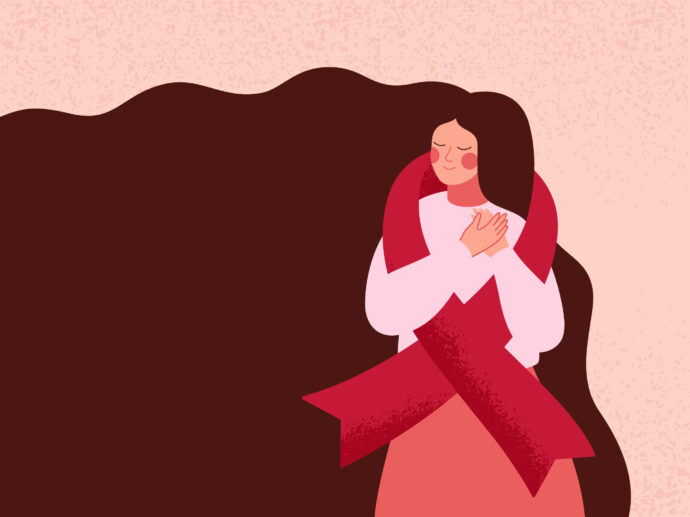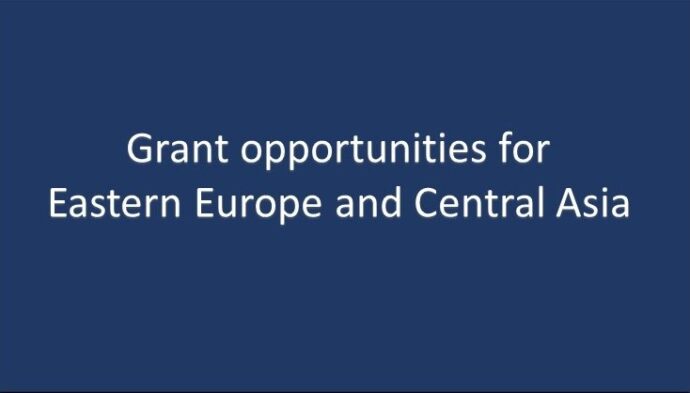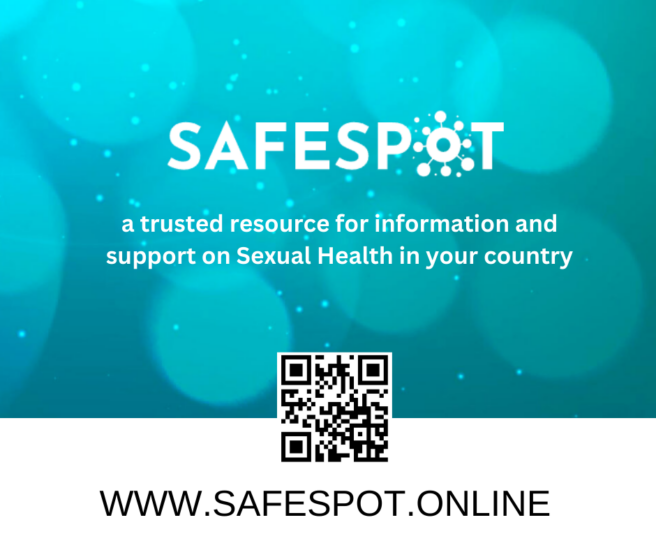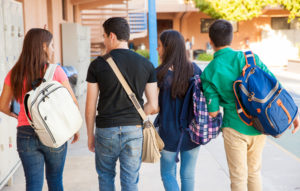 In 2016, AFEW International’s partner, the ICF “AIDS Foundation East-West” (AFEW-Ukraine), came up with the idea of creating a tool to monitor human rights violations amongst adolescents belonging to at-risk groups (known as MARA), which could be used by almost any specialists who provide assistance to these groups. It was also important to create a tool that would allow specialists to identify when minor’s rights were violated, even if a teenager came to them with a completely different request. In 2017, this idea was implemented in a pilot project to introduce a tool for monitoring and documenting cases of violation of the rights of MARA in Ukraine.
In 2016, AFEW International’s partner, the ICF “AIDS Foundation East-West” (AFEW-Ukraine), came up with the idea of creating a tool to monitor human rights violations amongst adolescents belonging to at-risk groups (known as MARA), which could be used by almost any specialists who provide assistance to these groups. It was also important to create a tool that would allow specialists to identify when minor’s rights were violated, even if a teenager came to them with a completely different request. In 2017, this idea was implemented in a pilot project to introduce a tool for monitoring and documenting cases of violation of the rights of MARA in Ukraine.
Vita Musatenko, AFEW-Ukraine consultant lawyer, spoke about the use of this tool in the framework of the projects “Bridging the Gaps: health and rights for key populations” and “Underage, overlooked: Improving access to integrated HIV services for adolescents most at risk in Ukraine”.
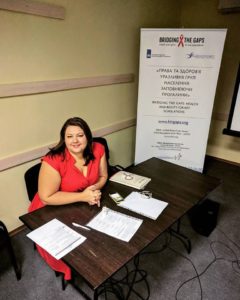 What constitutes a violation of human rights?
What constitutes a violation of human rights?
When we talk about violation of rights, we mean that there is a certain system, the state, which ensures certain human rights. For example, if we are talking about bullying, then the state, represented by the school principal, must ensure normal and comfortable learning conditions, the absence of bullying in the territory of the school and in the classroom. In this example, we can talk about a violation of the right to life, the right of respect for dignity, and the right to inviolability of property – depending on what form the bullying takes. When we talk about violation of the rights of adolescents, we must understand that there’s some kind of problem in the framework of the obligations of the state, which should protect these rights. In the case of violation of rights, the state is included and acts as a regulator, which must ensure these rights and ensure that they are not violated.
What does the monitoring of human rights violations among adolescents look like?
Monitoring rights is a system that we developed jointly with AFEW-Ukraine, and with the help of which we are trying to identify which of the rights of adolescents are commonly violated. We have a screening form with 11 questions, which the teenager completes with a social worker or psychologist. The questions are very different – how the child eats, whether their sexual relations are consensual, what kind of relationship they have with their parents, school and police, whether they have the documents that they must have by law. Based on this, we can put together an approximate picture of the life situation of a person, and determine if any of their rights are being violated. This process of monitoring is not carried out separately from our clients; providing our services to our clients is an opportunity to learn more about them. For example there are clients who always say that they are doing well, but then talk about other people’s problems, giving the social workers the opportunity to give advice on how to help others, and where to go for help. Sometimes, while filling out the form and discussing human rights, people identify situations not identified in the form but which may also be a violation, and bring to light stereotypes that a child may have, for example, with regard to the police or government agencies. In addition, in some cases, sometime after filling in the form teenagers come to social workers and, thanks to having an awareness of their rights, are able to talk about violations they have experienced. For example, cases where doctors don’t want to treat them without receiving additional fees, or a school administration which is demanding money to spend “on new curtains”, without which they will not be allowed to attend classes. But only by knowing that they have rights, can adolescents understand that some situations are not normal and that they can do something about them. In this way, we teach teenagers about their rights. We also teach children through our brochure “My rights are always with me”.
 How are violations of adolescents’ rights solved in the framework of projects?
How are violations of adolescents’ rights solved in the framework of projects?
If we detect a violation of rights, then the social worker follows a set sequence of actions. I, as a specialist in legal issues, am involved at various stages of the process – from determining whether there was a rights violation, clarifying what happened, and developing a way to solve the problem. Some of the organizations have their own lawyers who can make a statement, enable children to get assistance, and go with the children (social workers also do this often) to find out how the problem can be solved. For example, social workers go to family doctors with teenagers and tell them what kind of services they are required to provide under the law. Most of the time, if a teenager is accompanied by an adult, situations are resolved. In addition, most organizations have a good network of partnerships with other organizations who work with adolescents, and this helps to solve problems too.
Have you encountered difficulties in the monitoring process?
Many teenagers believe that since they are minors, they have no right to claim that they have been wronged or that their rights were violated. Basically, they are afraid to take some kind of active action, because they are afraid of creating even bigger problems. Often, our clients have no adults at all to tell about their problems, and the only person they trust is a social worker in our center. And therefore, one of the tasks of social workers is to instil the idea that if there is a problem, then it must be shared. When the teenager is silent he or she deals with the problem alone.
Teenagers may also be afraid to contact the police. It’s therefore very important to establish partnerships with the police. When children get to know the police and see their work, this fear goes away. In addition, we introduce our teenagers to lawyers and show them that they can help solve many different issues, especially when the lawyers are from our centers. It’s important to show that there is a system that can protect them.
Some government officials refuse to provide youth assistance. Sometimes this is due to prejudice towards adolescents who use drugs. And sometimes, such experts believe that a teenager should seek help only from his parents, and not alone or with a social worker.
There is also the problem that social workers often lack the time necessary for detailed talks, especially when it comes to conversations during outreach work. If there was more time, and a lawyer worked in each center, the work would be qualitative and more extensive. Sometimes, social workers fear that actions to address a violation of rights will harm adolescents instead of helping them, or that the social workers and adolescents will not have the strength and resources to solve complex problems. Indeed, sometimes, to resolve issues (even with the help of a free lawyer) people need, for example, to pay for legal costs, and adolescents may not have the money for this.
Are there any success stories?
We have many good stories. For example, in Kharkiv, the practice of restoring housing rights has proved very successful. Often, the team from the Kharkiv center manage to get places for clients in dormitories or social rooms, which helps teenagers a lot. In Kropyvnytskyi, many help teenagers who are charged with possession and distribution of drugs. And there have been a lot of positive solutions to the problem of bullying.
In Chernivtsi, for example, work with the police is well established, and there are many cases where employees of the Chernivtsi center improved relations between teenagers and the police. Following this, there were even two teenagers who later wanted to become police officers themselves. In addition, in Chernivtsi, public services often redirect children to the Center. We’re having great success in each city, and the teams that work in each centre are all very smart and work well.
There are many cases of rights violations, and we need to provide information to demonstrate that in Ukraine there are positive cases where the rights of adolescents have been protected. This way, adolescents will see that the monitoring and enforcement system works and that every person, regardless of age, has rights and needs to be protected. We are therefore educating future adults who are not afraid and are capable of defending their rights.


